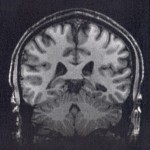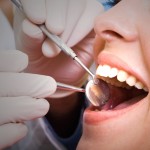
Ian Anderson on a recent diagnostic accuracy meta-analysis, which shows that the Whooley questions for depression are effective at ruling out the condition, but that false positives are common.
[read the full story...]
Ian Anderson on a recent diagnostic accuracy meta-analysis, which shows that the Whooley questions for depression are effective at ruling out the condition, but that false positives are common.
[read the full story...]
Sally Adams summarises a meta-analysis of specialty substance use disorder services following brief alcohol intervention, which finds a lack of evidence for SBIRTs despite the widespread public health support for this type of programme.
[read the full story...]
Samei Huda reviews a meta-analysis of multivariate pattern recognition studies, which aims to detect neuroimaging biomarkers for schizophrenia.
[read the full story...]
Rosalyn Nelson reports on a recent systematic review about population screening for dementia, which highlights the negative attitudes of patients, carers and health care professionals towards screening. She asks: what are the risks of ignoring diagnosis?
[read the full story...]
Elena Marcus appraises a recent meta-analysis of screening for bipolar spectrum disorders, which concludes that the MDQ and HCL-32 tools are supported by more evidence than the BSDS tool.
[read the full story...]
In this blog, Lesley Dawson considers a systematic review examining musculoskeletal Intermediate Care pathways to evaluate their effectiveness, outcomes and identify gaps in evidence.
[read the full story...]
Liz Hughes reviews two recent Lancet papers about the health needs of people who are homeless and the best ways to meet these needs.
[read the full story...]
This study compared the diagnostic accuracy of dental screening by hygiene-therapists with dentists. The results show that they could be used to screen for caries and periodontal disease. This could allow for a change in the traditional model of dental care seen in the UK.
[read the full story...]
Josephine Neale blogs about a systematic review of screening tools for anxiety disorders, which concludes that the GAD-7 and PHQ instruments are appropriate for use in primary care.
[read the full story...]
Depression in teenagers is a significant problem, with serious and potentially fatal consequences. Estimates of how many teenagers have depression at any one time vary between countries, but overall about 4-5% of mid to late teens worldwide are thought to experience clinical depression every year (Thapar et al, 2012). Much of the current knowledge of [read the full story…]